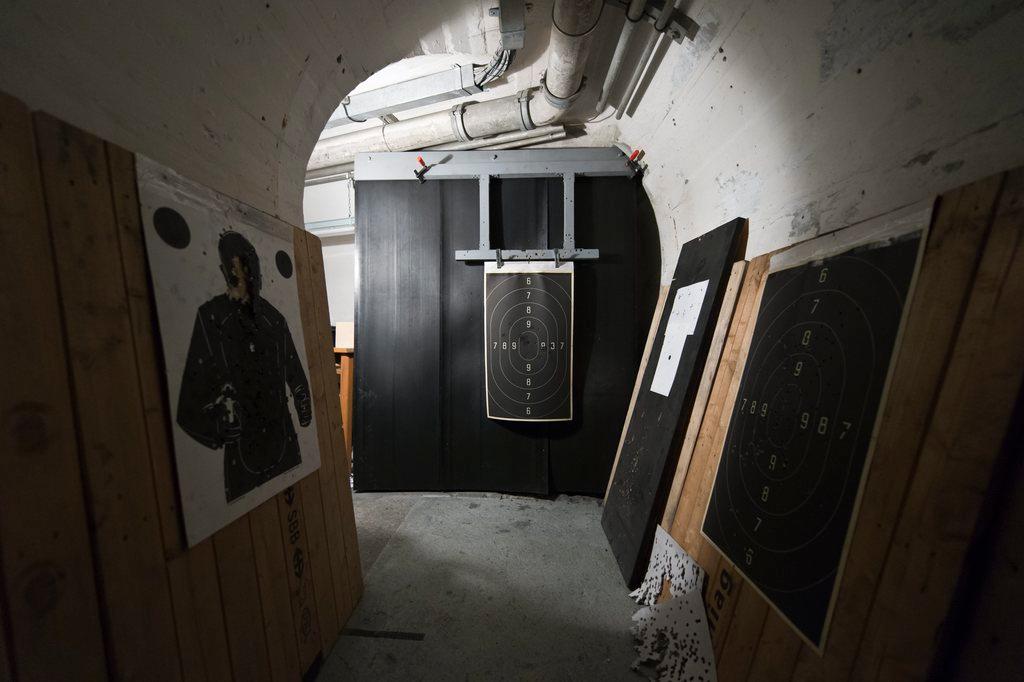
Documents on secret Cold War army unit confirmed missing

A parliamentary commission has confirmed that documents relating to a covert Swiss Cold War paramilitary group, known as P-26, which were lost by the Federal Department of Defence, have disappeared.
In a report released on Tuesday, the parliamentary control delegation announced that it was concluding the search for missing documents related to Switzerland’s covert Cold War paramilitary group P-26.
According to the liaison officer of the Federal Council to the parliamentary commission of the inquiry in charge of the search, there is no reason to believe that the documents were destroyed at the time. He did not rule out that the documents were archived years ago.
“Projekt 26”, or P-26, had its roots in the 1950s when the Swiss military began assembling a secret guerrilla-style force to resist a Communist invasion. P-26 was disbanded in 1990 after revelations of its existence prompted a public scandal.
Early last year, it was reported that the Federal Department of Defence could not find 27 unpublished folders and dossiers from an investigation into the group three decades ago.
Critics expressed concern that the documents were destroyed or intentionally misplaced to hide embarrassing details about neutral Switzerland’s surreptitious advances toward NATO (the North Atlantic Treaty Organization) or clandestine ties to foreign spy agencies.
On 20 December 2018, the Department of Defence transferred all collected documents concerning P-26 to the Federal Archives, which included a list of names of members of the secret armed organisation. According to the Swiss newspaper Neuer Zürcher ZeitungExternal link (NZZ), the list of names is subject to a 50-year protection period, meaning that the list will be available to the public from 2041 onwards.
Controversial period in history
Secret Cold War-era groups such as P-26 were not uncommon in Europe, whose NATO members feared an attack by Warsaw Pact members – the Soviet Union and seven Soviet satellite states – and organised “stay behind” units with orders to operate behind enemy lines in case of a Soviet invasion.
A paramilitary network was supported mostly by the United States and Britain, and included units in Italy, Belgium, France, Greece, West Germany and the Netherlands, according to historians.
While Switzerland is not a member of NATO, it joined the Partnership for Peace in 1996 and became a member of the Euro-Atlantic Partnership Council in 1997.
In 1991, Switzerland’s probe into P-26 concluded that while it was not part of any “international resistance network”, it had unusually intense ties to British agents starting in 1967.
“Though the loyalty of former chiefs of staff was never in doubt, it is alarming that the British services knew more about P-26 than the Swiss government did”, the government wrote at the time, calling unilateral military initiatives without civilian oversight “intolerable”.
Josef Lang, a historian and former leftwing parliamentarian, had suspected that there may be much more in the missing documents than the scant details that have been released previously about P-26, including whether P-26 ever had any plans to intervene in Swiss domestic affairs.
“P-26 exemplifies the Cold War hysteria that, at least partially, undermined Swiss democratic institutions,” Lang said.

More
Details of secret Cold War Swiss army finally revealed

In compliance with the JTI standards
More: SWI swissinfo.ch certified by the Journalism Trust Initiative






























You can find an overview of ongoing debates with our journalists here . Please join us!
If you want to start a conversation about a topic raised in this article or want to report factual errors, email us at english@swissinfo.ch.